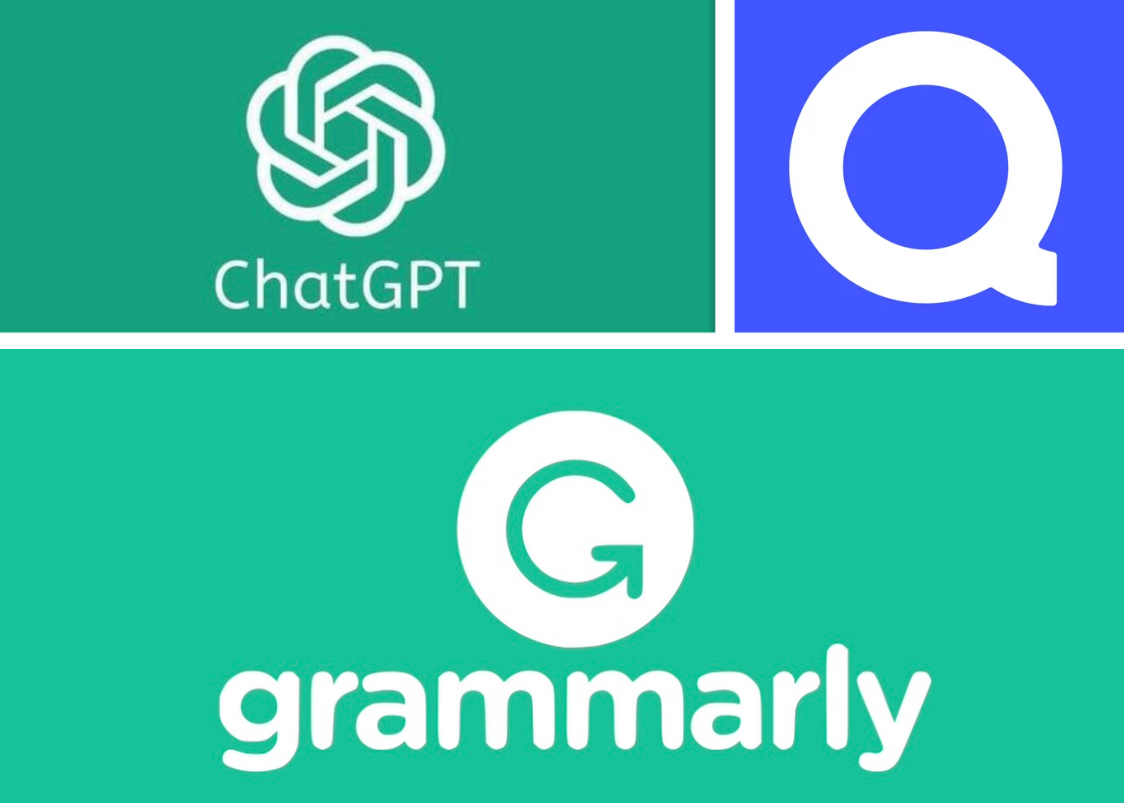Technology has never advanced so quickly in human history before. With the introduction of grammar and writing assistance powered by artificial intelligence (AI), most notably Grammarly, the way the world approaches writing has wholly transformed. These programs are useful to many, helping to save valuable time in a click of a button. But when does the damage start to outweigh the benefits? Once the side effects are taken into account, it becomes clear that tools such as Grammarly have a negative impact on their users and should be approached with caution.
American culture emphasizes efficiency and productivity, and with high pressure on people to churn out both fast and high-quality products, it is tempting to resort to auxiliary programs like Grammarly without considering their adverse effects. Boston Latin School history teacher Ms. Sandra Stuppard notes, “[American culture surrounds the mentality of] ‘if it’s efficient, it’s good.” With the increasing demands on students to build an extensive portfolio, tools like Grammarly seem like an obvious solution.
But is convenience really worth the expense of one’s ability to express ideas creatively? Many of these applications give suggestions based on existing information within their AI software and databases. Grammarly claims these suggestions “[Offer] a stronger synonym, or a clearer sentence structure,” which largely suppresses one’s complex style in favor of a computer’s standardized simplicity. Although this simplicity may provide more clarity to the reader, writing with such a robotic form hinders the expression of individual ideas.
The importance of a unique voice is emphasized in literary classics such as J.D. Salinger’s The Catcher in the Rye, where Salinger’s writing style conveys the protagonist’s internal thoughts and feelings through a first-person lens. Readers are able to grasp the protagonist’s emotions just by the order and frequency of the punctuation and periods placed. Although Grammarly is able to provide simplicity, it is unable to provide true human character.
Additionally, standardized tests such as the SAT, which examine students’ mastery of grammar and syntax, make it imperative that students comprehend English grammar and mechanics. It is equally important to communicate with others naturally and effectively through mastery of language. Former Grammarly user Austin Zhu (III) argues that “students should be able to think for themselves” and Grammarly should be treated as only a “short-term solution” to correcting grammar and spelling.
Grammarly has dedicated its entire industry to monopolizing society’s growing demand for a more efficient writing process. Grammarly’s advertisements heavily feature people who are frustrated and vulnerable without writing assistance, emphasizing that productivity and prosperity comes to those who use assistive technology.
As society begins to incorporate systems like Grammarly into everyday life, however, the standard of writing changes. Ms. Stuppard expresses this concern, explaining, “If Grammarly correction is the standard for written work, then the person could be adversely affected if they don’t use the tool.” Social pressure then makes Grammarly more of a necessity than a commodity.
Writers should be confident enough in their writing skills that Grammarly is not the “final arbiter of what’s good,” as BLS English teacher Mr. Robert Oakes says. Leaning on a crutch makes people less confident in their own abilities, which discourages them from practicing. When someone constantly feels unsatisfied with their ability to perform a certain task, they will begin to avoid that task whenever possible.
Programs like Grammarly are helpful when managed correctly. The issue arises, however, when people are not aware and deliberate enough about how they use them. Mr. Oakes adds, “[These programs are] useful tools as part of your toolkit, [but there is] no reason why students can’t learn to do those same operations themselves.”
Automated writing programs should be used with caution. The ideal solution to avoid overdependency is to disable writing assistance and enable it only for relevant situations, such as during school hours, when one’s original writing may be more impactful and indicative of their academic performance.
With advertisements constantly perpetuating the benefits of assistive technology, it becomes harder for students to ignore the appeal and efficiency they provide. A more realistic approach is for students to understand the adverse effects of using programs like Grammarly, and to learn to adapt to life without their help, one word at a time.








